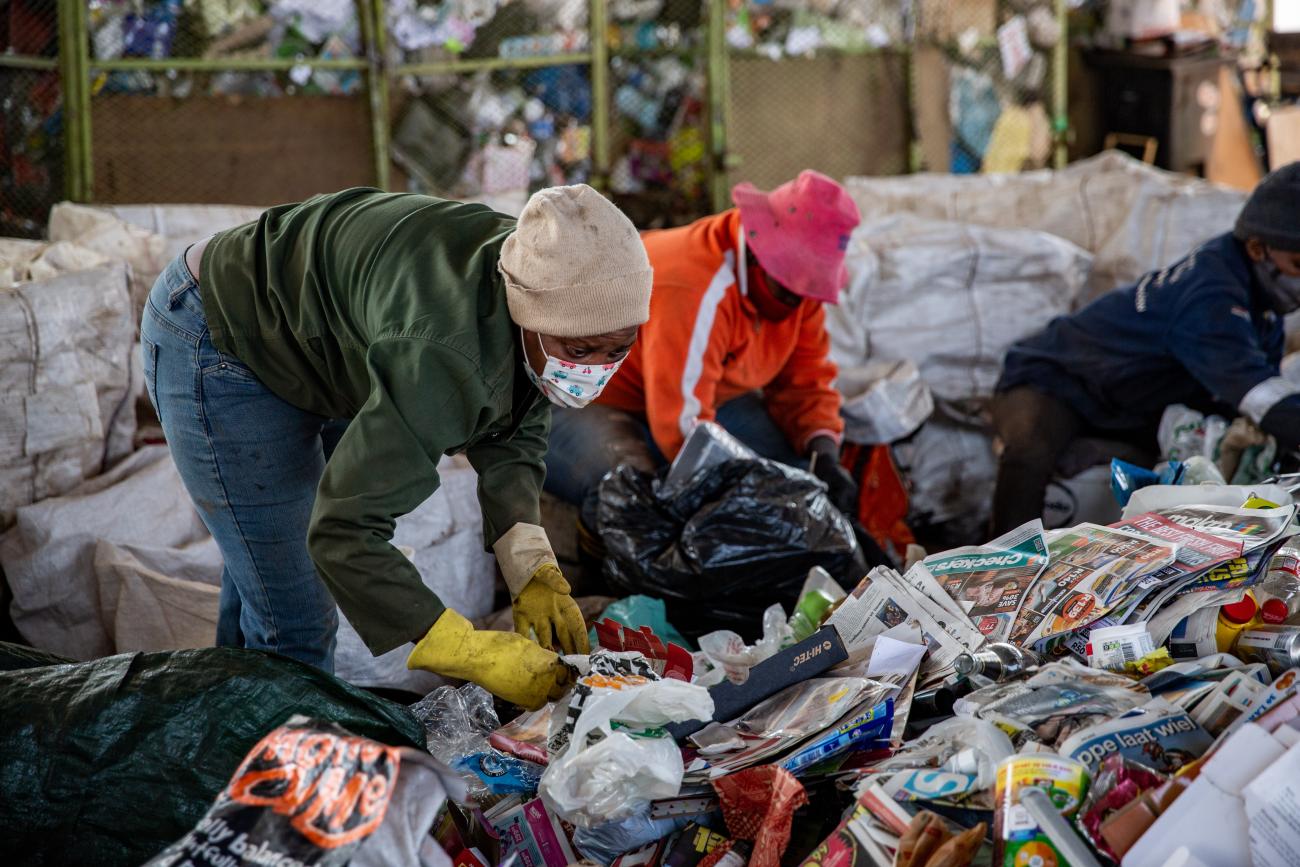Informal waste reclaimers contribute 90% to South Africa’s recycling output by diverting volumes of recyclable material from overflowing landfill sites.
The United Nations Industrial Development Organisation (UNIDO) in collaboration with the Council for Scientific and Industrial Research (CSIR) and the University of the Witwatersrand (Wits) have implemented a project that aims to strengthen capacities for plastics recycling and support the implementation of the National Guideline for Waste Picker Integration in South Africa. This project forms part of a three-year programme to support South Africa in transitioning from conventional plastics to more environmentally sustainable alternatives
Informal waste reclaimers contribute 90% to South Africa’s recycling output by diverting substantial volumes of recyclable material from overflowing landfill sites however their valuable contribution towards sustainability is not recognised. Policies and frameworks such as the National Guideline for Waste Picker Integration emphasize how the incorporation of informal waste reclaimers into the formal economy through circular economy approaches would contribute towards achieving gender equality in the sector, and assist in eradicating poverty and hunger.
In 2021, the Department of Cooperative Governance and Traditional Affairs (COGTA) and the United Nations Development System in South Africa launched a partnership to support the government in the implementation of the District Development Model (DDM) in three pilot districts, namely OR Tambo in the Eastern Cape, Waterberg in Limpopo, and eThekwini in KwaZulu-Natal. As part of this initiative, UNIDO is undertaking capacity building and training programmes for waste reclaimers In the three pilot districts. The objective is to promote job creation in the waste management sector through the development of inclusive and sustainable recycling value chains, targeting vulnerable and marginalized communities.
This project aims at raising plastic collection rates to strengthen plastics recycling in rural and urban areas in South Africa through capacity building and training initiatives. Speaking at Regorogile a Township in Thabazimbi Limpopo, Tebogo Maleka from UNIDO said: “Given the high unemployment rate in South Africa that currently sits at 66.5% for young people between the ages of 15 and 24, we have noticed that more young people are exploring the waste management sector as an income opportunity. By partnering with organizations such as PETCO which conducts training aimed at PET collection and recycling, waste separation at source programmes, and turning plastic waste into a profitable business, we expect that the quality of collected recyclables will improve. This will increase recycling rates in municipalities, therefore contributing towards a green economy and increasing the daily earnings of waste reclaimers “
Funded by the Government of Japan, this project aims to accelerate South Africa’s economic development through the enhancement of recycling value chains and promotion of business partnerships. By supporting and empowering waste reclaimers, significant amounts of plastics that would otherwise end up on landfill sites are diverted, this project will assist in optimizing landfill management and substantially reduce the volume of plastics leaking into the environment.







